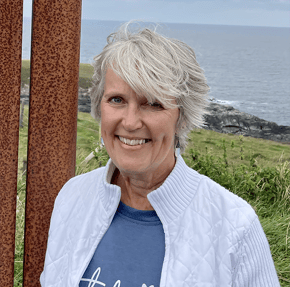“Whatever is true, whatever is honorable, whatever is just, whatever is pure, whatever is lovely, whatever is commendable, if there is any excellence, if there is anything worthy of praise, think about these things.”
—Philippians 4:8
The Struggle is Real
As a species, human beings are full of contradictory desires, thoughts, and beliefs. Traditionally known as our “fallen human nature,” the darkness and confusion in our minds and hearts is at the root of our desire to change. We feel “out of joint.” Or, as Bishop Eric Varden reflects:
[God’s] image lives in us as a felt imperfection. To be human is to exist with a sense of an absence to be filled.
At the end of every year, on the cusp of the new, this desire for change, to achieve long-held or newly minted goals, drives us—young or old—to make “New Year’s” resolutions. People seem to believe that the beginning of the year is a threshold that, once crossed, is the portal to a magic place where one will finally do or become all that one desires.
Sigh. If it were only true.
And yet. . . there is something energizing, hopeful even, in the idea of a fresh start and new beginnings.
What Does It Take To Create Lasting Change?
With the self-help industry topping $11 billion, there are a seemingly endless number of apps, articles, and books offering advice on this very topic. A quick review reveals some very thoughtful suggestions.
One very insightful idea is the year-end review. The tendency to look forward, to set goals, and to start fresh often eclipses this fundamentally sound practice. Few of us tend to look back at the previous year to ponder the achievements and mistakes of the year just ending. Like the Jesuit practice of the Examen, often recommended by Fr. Spitzer, such a review can highlight areas in our life that need attention and offer the opportunity to learn from past mistakes—how could we have handled that situation differently? What do I need to change in my attitudes or actions in myself?
For some of us, general suggestions or ideas offer enough guidance to set us on our way. For others, guidance in the form of a method or a plan is more helpful. There is one potentially life-changing entry into this marketplace of creating intentional changes: the Monk Manual Planner. According to their website:
Monks are the most productive people in the world. They know that productivity isn’t about doing more things. It’s about doing the most important things well and eliminating the rest.
Founded by Steven Lawson, a whole-person productivity coach, the Monk Manual emphasizes being overdoing. Lawson offers practical tools and free resources to help you focus on aspects of your life that need cultivation. The goal is not to become more “productive” but to live fully and peacefully in the present moment while achieving your goals. Just as an example, Lawson recommends pondering a theme for the month along with one or two habits to cultivate. Whether choosing a theme or new habits to embrace, the focus is on these ten principles:
- Gratitude
- Simplicity
- Intentionality
- Order
- Generosity
- Relationships
- Reflection
- Presence
- Balance
- Transcendence
The theme could be an area where you struggle or might encompass a dream or desire you already have in your heart. The practice of identifying a theme is meant to make it easy to identify the habits one might want to cultivate. Here, too, there is a list of 100 habits! Because each of the “100 habits” is actionable and measurable, you can track your progress with a chosen habit or two over weeks and months. The descriptions of the ten principles are worth reading if only to open your eyes to new possibilities.
The Freedom to Make (New) Choices
The simple practice of gratitude is certainly a New Year’s resolution that would benefit most of us. Every day, you notice and write down at least three things that you choose to recognize as a “gift.” They can be very simple: the joyful chirping of the birds in the early morning, jam piled high on buttery toast–you get the idea. However, creating opportunities to experience awe, such as reading stories about the goodness and compassion of others and experiencing the beauty of nature or music, can change our attitudes and responses to the challenges of daily life. The changes in us include diminishing a sense of self and entitlement to becoming more generous and less aggressive.
Another very simple practice is recommended by St. Teresa of Calcutta: smile at people you encounter throughout the day.
“Every time you smile at someone it is an action of love, a gift to that person, a beautiful thing.” —St. Teresa of Calcutta
Try it. You might be surprised at what happens!
The Gift of Life and Freedom
As human beings, we have the freedom to make choices. Sometimes, these choices can hurt us or others. The good news is that we are also free to “become new choosers” and make choices that ultimately change the direction of our lives for the good. So, even if you do not adopt a system for embracing changes in your life, the simplest changes are often an effective way to incorporate a shift in your way of being and doing in the world.
Whatever choices you make this year, may they bring you and those around you closer to becoming who God intends you to be!
"The adventure of human life on this planet is not something that falls under the category of 'necessity.' We have the suspicion. . . that none of this, including ourselves, need to have existed. Though things about us seem to be 'of necessity,' we ourselves seem more the result of something being given, and given freely. We fall more in the category of gift than of necessity." —Fr. James Schall, SJ

